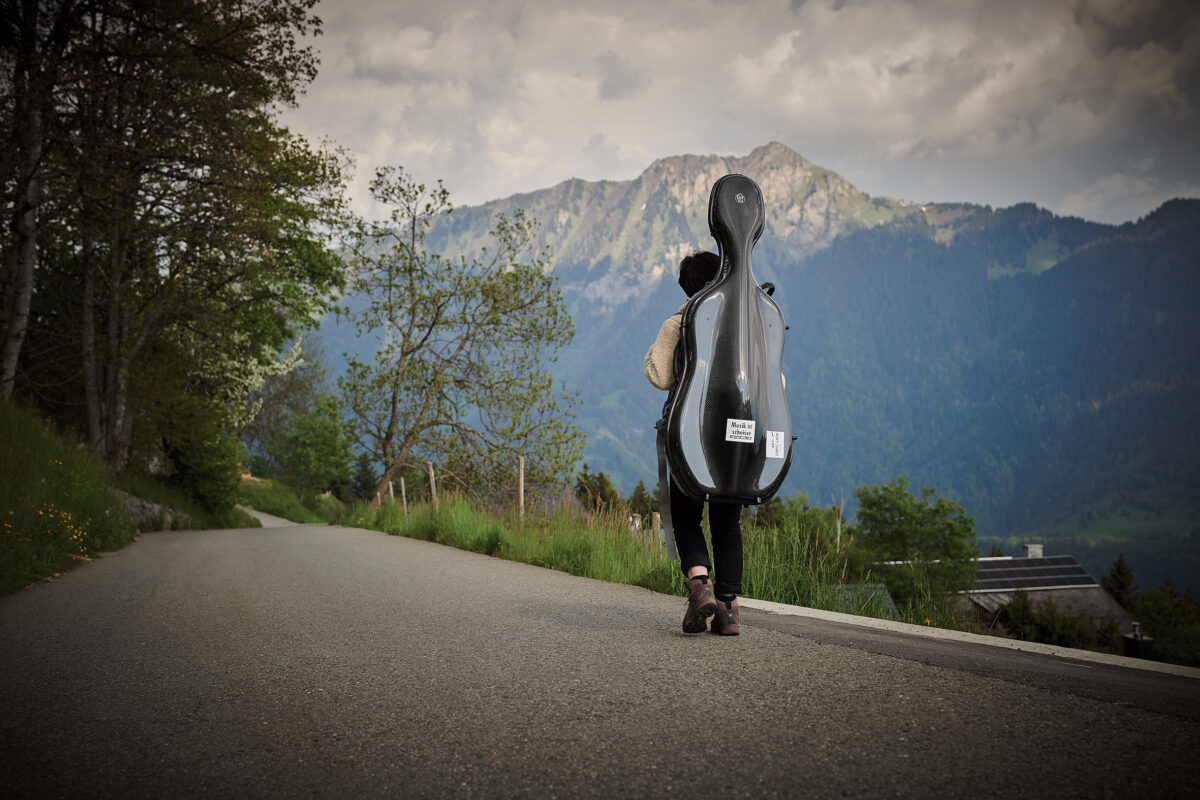Eclipses: a musical work at the heart of the cosmos
Cyprien Lengagne, a young Franco-Swiss composer and cellist, invites us to think about space-time, the relationship between nature and man, nature and cosmos, musicians and performers.

Cyprien Lengagne winner of the Prix d'encouragement "New compositions Jacques Cerf Fundcreated in 2020, with his work Eclipsesperformed on December 5, 2024 by the HEMU orchestra at the Salle Métropole in Lausanne, in a joint concert with the Sinfonietta de Lausanne.
In a timeless dimension of sound, Cyprien Lengagne presents three celestial bodies gravitating around each other, conversing in the cosmic immensity, then one slowly fades away, a few sparkles in the firmament remain, a little bell sound slips in until the last breath. All conducted with velvety power by conductor Ruth Reinhardt. In his competition entry, Cyprien Lengagne describes "the large mass of object 3 in the foreground twice deforms object 2, creating a 'gravitational lens' effect. Finally, on two occasions, the other bodies 'steal' matter from object 2, which ends up partially merging with object 3, constituting the climax of the piece".
Cyprien Lengagne plunges us into the cosmos with Eclipsesa piece for some thirty musicians. A keen astronomer, Cyprien Lengagne follows live broadcasts of space exploration. "I follow the NASA launches, the spaceship launches on streaming. I remember the landing of NASA's Perseverance rover in 2021, broadcast live." His work is program music in which space becomes sound matter. "I have no plans to compose other works on astronomy, but this one was an inspiration for the Fonds Jacques Cerf competition. I wasn't particularly inspired by the eclipse of 2024, but by the general phenomenon." An astonishing synchronicity, since Jacques Cerf was a fervent astronomer and mystic space metaphorist, dimensions central to Freemasonic metaphysics.
A parallel between nature and music
In EclipsesThis is the only piece in which I draw such a direct parallel between nature and music. It creates a structure that reflects an automatic organization. The planets have no feelings, they gravitate in a cycle, a mastodon can annihilate a smaller object! Far be it from me to limit myself to this theme. This composition is a 'musical scenario' in which I guide the performers, and popularizing the work's intention is essential. I add notes to the score to facilitate the musicians' immersion in the work. As a cellist, I remember a concert or public rehearsal in which certain aspects of a contemporary work were explained to the audience, but these indications had not been passed on to the musicians during the rehearsals. In the score, I use the English term 'object' for my celestial objects."
EclipseDuring the first fifteen seconds, a "sound carpet" is laid down, allowing the listener to immerse himself in space-time, movement and time dilation. "I collaborated as a performer with Lisa Streich, with whom we exchanged ideas on 'word music' to stimulate the musicians' creativity. Metaphors and indications help. The musical scenario creates a relationship with the musicians' intentions and the conductor's direction."







